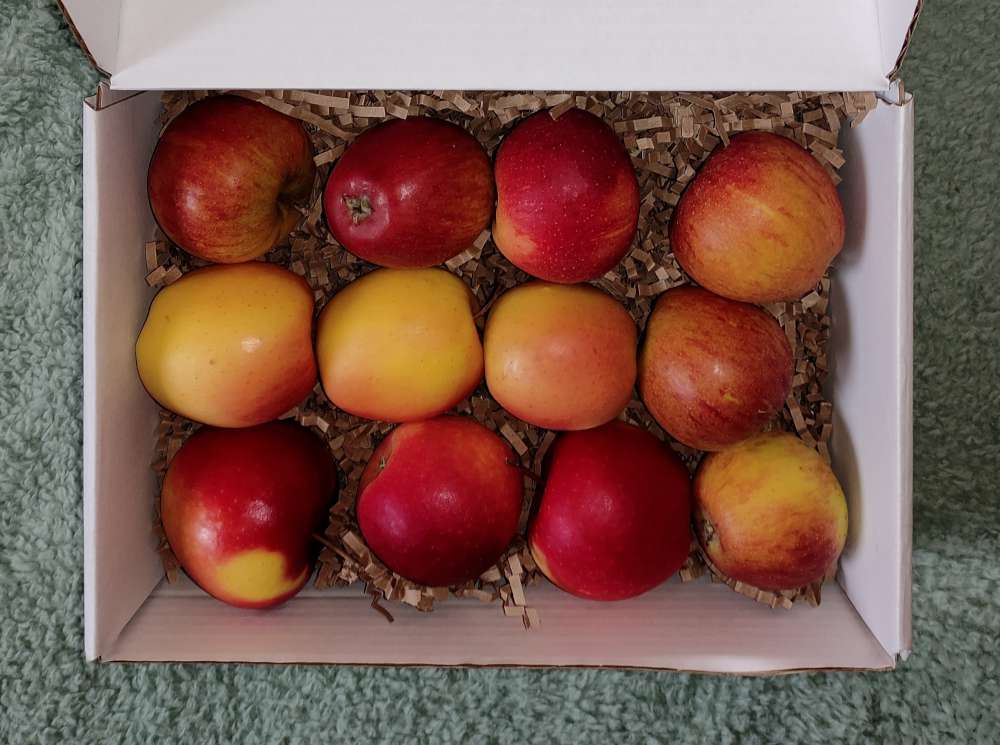To receive our free monthly newsletter with tips on care for a garden orchard, just send us an e-mail to enquiries@realenglishfruit.co.uk with “Please add me to your newsletter mailing list” and your name in the subject line.
This month’s newsletter
December 2025
This is the right time to prune apple and pear trees. Winter pruning invigorates growth, and it can be performed any time from now until the end of March. Any sizeable pruning cuts will have to be sealed with a sealing compound. Watch a video tutorial on how to prune an apple tree. Check your trees for canker, or for waterlogged soil. Canker has to be cut out: waterlogged soil has to be improved by means of effective drainage. Just send us an email if you need help with drainage.
Remember not to prune plums, greengages and cherries in winter.
How to control pests and diseases in December
Woolly aphids. Effective insecticides are no longer available to the gardener or the allotment holder. Brushing the affected branches with luke-warm water and some detergent will reduce the problem. Repeat the treatment a month later.
Check on general welfare. Make sure that rabbit guards are in place. Particularly efficient guards are necessary if muntjacs are present in your garden orchard. Check for grown-in or restricting ties around tree trunks and remove as necessary. Replace broken stakes. Remove stinging nettles and perennial weeds. Ideally there should be a 1-metre-diameter circle free from grass and weeds around each fruit tree.
Read more Garden Orchard tips for the month of December.
Winter Wonder apples online
Our unique apple variety Winter Wonder – which ripens later than most varieties, and will reach optimum flavour in December – will be ready for sale online very soon. Keep an eye on our website.
🛠 Personalised help
If you need help in caring for your garden orchard, or for planning new planting, or for radically restructuring large trees that have gone out of control, send an email to enquiries@realenglishfruit.co.uk. Whether you have just one or two trees in your garden, or a large orchard, we can help revitalise underperforming trees, pruning them and performing specialised operations such as converting a standard tree into an espalier, or grafting a new variety onto an existing tree. We can provide advice online, or with on-site visits. For enquiries, contact Dan at enquiries@realenglishfruit.co.uk
Explore our website https://realenglishfruit.co.uk/, and take a look at our video channel for more info

